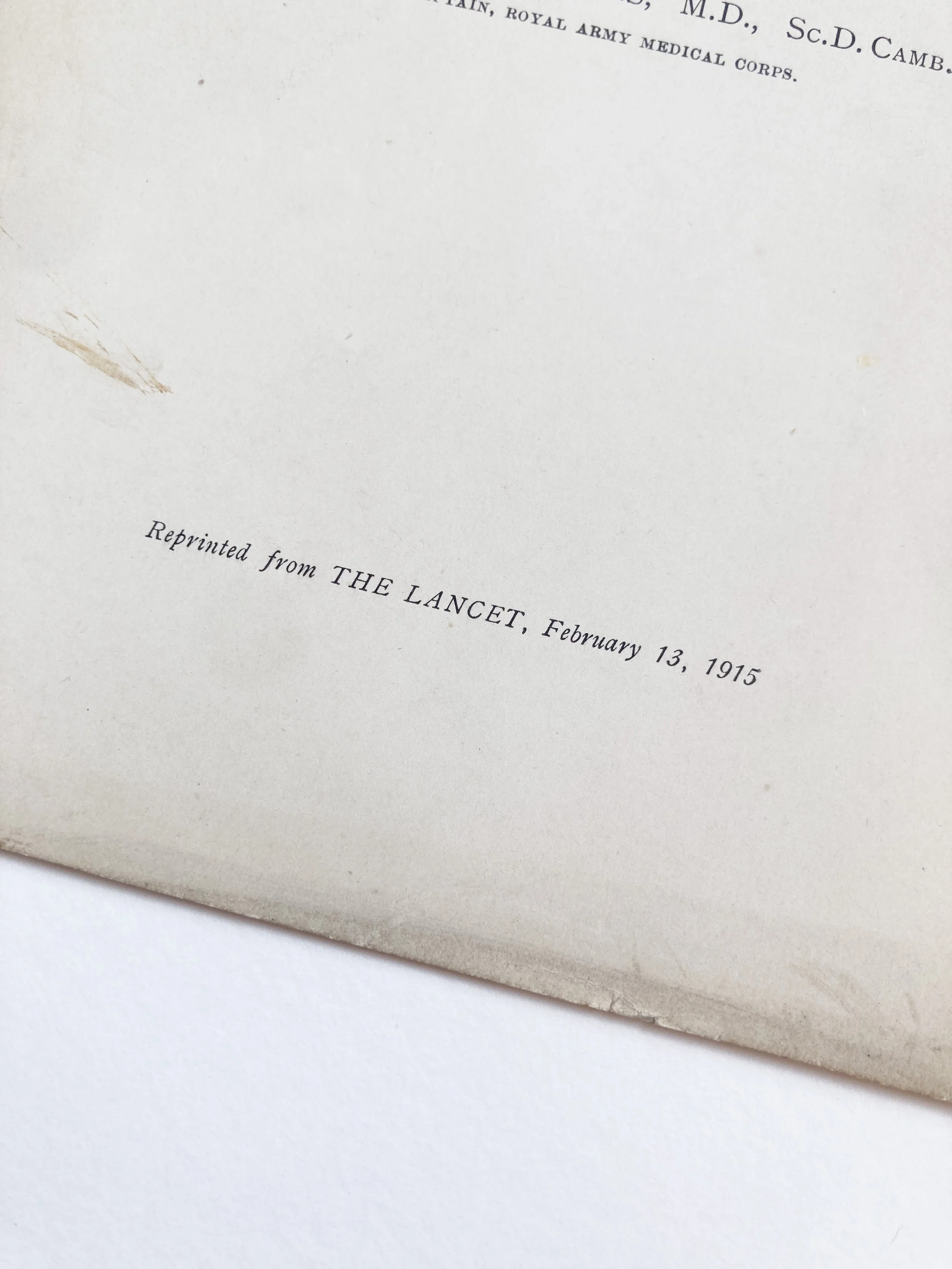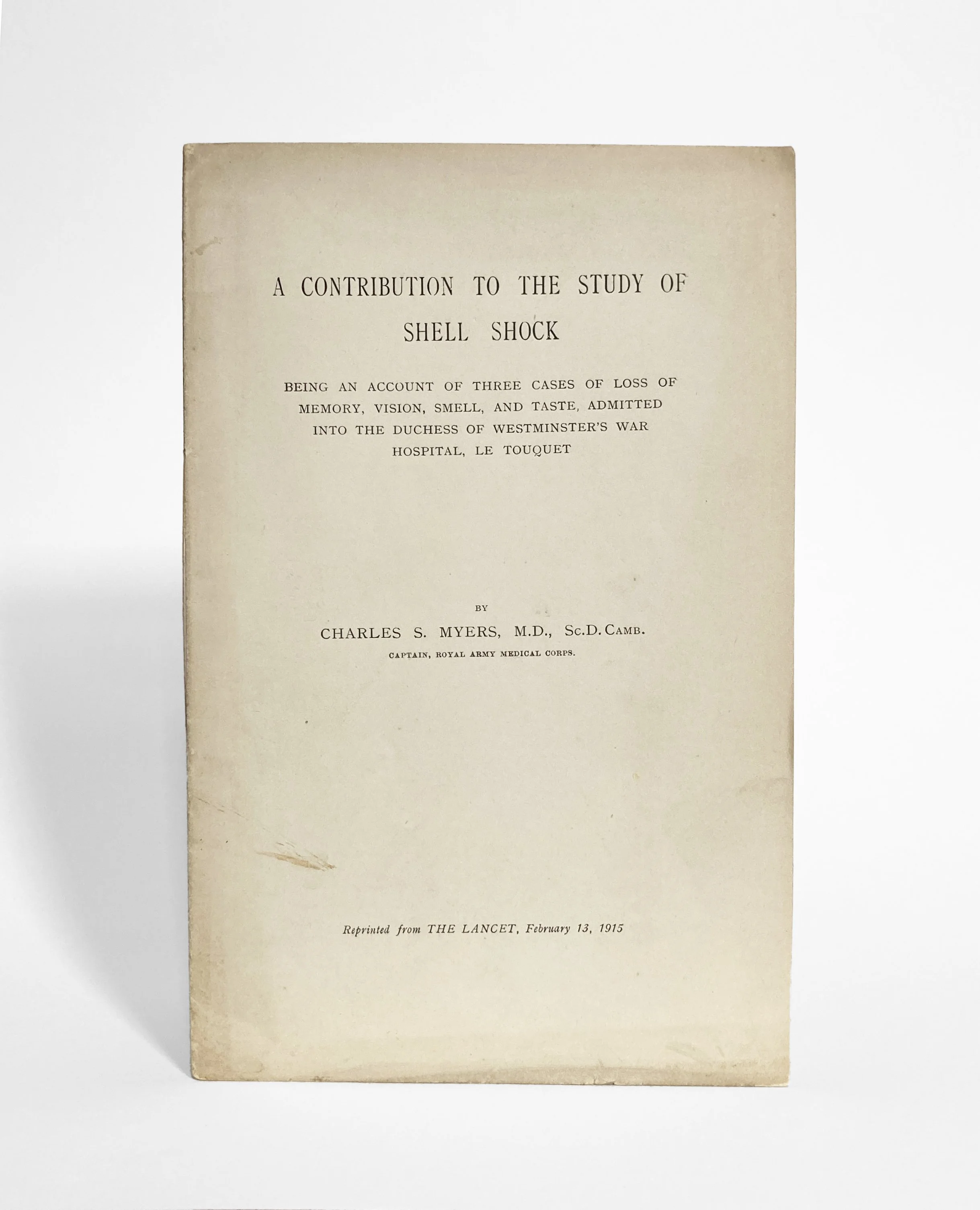C.S. Myers on Shell Shock: Exceptionally scarce offprint group, 1915–1919





C.S. Myers on Shell Shock: Exceptionally scarce offprint group, 1915–1919
Charles S. Myers’ foundational account of ‘shell shock’, as published in The Lancet, 1915–1919, comprising three offprints:
1. ‘A Contribution to the Study of Shell Shock: Being an Account of Three Cases of Loss of Memory, Vision, Smell, and Taste, Admitted into the Duchess of Westminster’s War Hospital, Le Touquet’, The Lancet, 13 February 1915
2. ‘Contributions to the Study of Shell Shock: Being an Account of Certain Cases Treated by Hypnosis’, The Lancet, 8 January 1916 [two copies]
3. ‘A Final Contribution to the Study of Shell Shock: Being a Consideration of Unsettled Points Needing Investigation’, The Lancet, 11 January 1919 [two copies]
On 13 February 1915 C.S. Myers introduced the world to a syndrome already notorious on the Front Lines: ‘Shell Shock’.
Myers was Director of the Cambridge Psychological Laboratory, and had volunteered for war work in the autumn of 1914. He was sent to the hospital at Le Touquet, where he encountered patients sent back from the front with a range of disturbing physical and psychological symptoms.
Myers’ background was in the natural sciences and anthropology – like W.H.R. Rivers, another expert on Shell Shock, Myers had taken part in the 1898 Torres Straits expedition, and had subsequently turned to experimental psychology. The 1915 paper is therefore concerned with sensory function and memory.
In fact, although we might now associate Shell Shock with Post-Traumatic Stress Disorder, it is likely that at least these early patients were suffering from Traumatic Brain Injury, something confirmed in recent studies of the harmful effects of repeated head trauma amongst soldiers serving in the US Army.
For Myers the work was to become more than just a clinical intervention: at the time punishments for ‘desertion’ were servere, including hard labour and even execution. In these three papers Myers gave serious medical attention to something that was otherwise seen as a problem of morale or courage. He also explored the success and failure of various kinds of treatments, expressing deep concern about electrical shock treatments, and advocating hypnosis, amongst other therapeutic measures.
The experience took its toll on Myers, and he was not able to take part in the post-War Southborough Committee on shell-shock owing to the pain he felt at recalling his war work. His contribution had been profound, nevertheless, laying the path for a deeper understanding of the relationship between psychological trauma and physiology, for the effects of war on the psyche, and the study of neurosis in all its forms.
These offprints are exceptionally scarce: we can locate only one other set, at the Wellcome Library.
All five (with two copies of Nos 2 and 3 each) are in very good condition: some marks and light stains to the covers, with a little bleed-through to the final pages of No. 1; fading to the edges of the cover of No. 2. All three stitched as issued.

